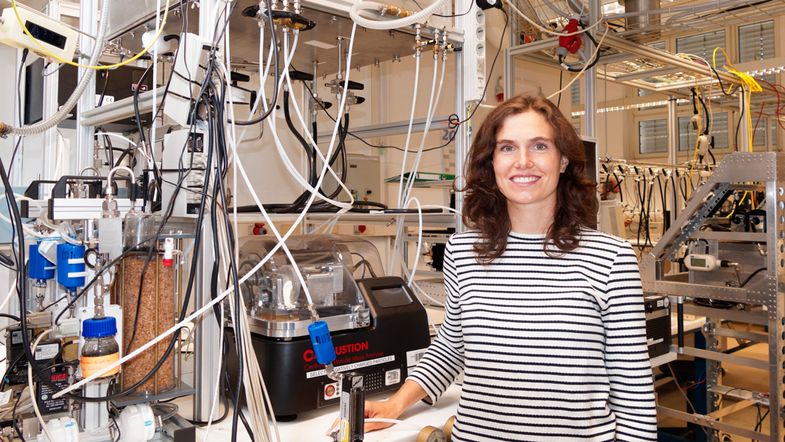Her professorship at the Institute for Meteorology at the Leipzig University is the fourth joint appointment with TROPOS. This means that all department heads at TROPOS are now also professors at the Leipzig University. Through their research on clouds, both institutes provide important insights for global climate models and thus for the strategic research field of "Sustainable Foundations for Life and Health", one of the three focal points of the university.
In addition to humidity and temperature, the formation of clouds and precipitation depends primarily on aerosol particles. These tiny fine dust particles act as nuclei for cloud droplets and ice crystals. Without them, there would be no clouds and thus no precipitation, no vegetation and no life on Earth. At the same time, fine dust can also contribute significantly to air pollution and thus threaten human health. Aerosols, clouds and their interaction are currently still among the greatest uncertainty factors in climate models. The physical properties of fine dust particles are therefore of fundamental interest and are being researched at TROPOS in the "Experimental Aerosol and Cloud Microphysics" department, which has made a name for itself worldwide with the development of aerosol measurement technology, among other things.
At the Max Planck Institute for Chemistry in Mainz, Prof. Mira Pöhlker has been investigating such processes in her working group "Cloud Condensation Nuclei". The size, concentration and chemical composition of the aerosol particles influence the growth of the cloud droplets around the cloud nuclei. How much these processes are influenced by human factors such as air pollution is one of the questions Pöhlker is investigating in Mainz. "In Leipzig, I would like to continue and expand my previous work on the interaction between aerosols and clouds. The long-standing expertise available here and my experience in field measurement campaigns worldwide - including in the Amazon rainforest - complement each other perfectly. This also fits in well with the plans of the Leipzig University and TROPOS to focus on researching the diverse exchange processes between the biosphere and the atmosphere," Mira Pöhlker reports.
"We are glad to have won over a promising young top scientist in Prof. Mira Pöhlker, who has already shown great commitment to TROPOS in the run-up to taking up the post. She will set new accents, especially in the areas of particle formation and aircraft measurements, which fit perfectly into the long-term strategy of the Institute," says Director Prof. Andreas Macke. As head of department, Pöhlker is now also responsible for the Institute's research workshops, where special measurement technology for aerosols, among other things, is developed and built.
In recent years, Pöhlker had participated in several missions of the German research aircraft HALO and can thus contribute her experience to the preparation of a HALO campaign on clouds in the southern hemisphere, which is planned as "HALO-South" for September 2025. She has also conducted research at the Amazon Tall Tower Observatory (ATTO), a 325-metre-high observatory in the Brazilian rainforest. The Amazon region is one of the most biodiverse areas on Earth and has a major impact on global climate, but is increasingly threatened by drought, forest fires and deforestation. The Amazon is a hotspot for biodiversity and climate research. An expert like Pöhlker is therefore an excellent fit for Leipzig's expertise in these fields.

Comments
No comments found!